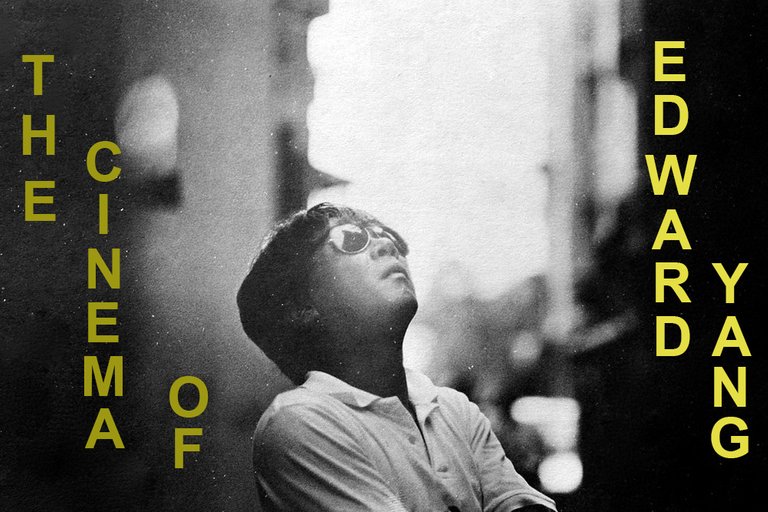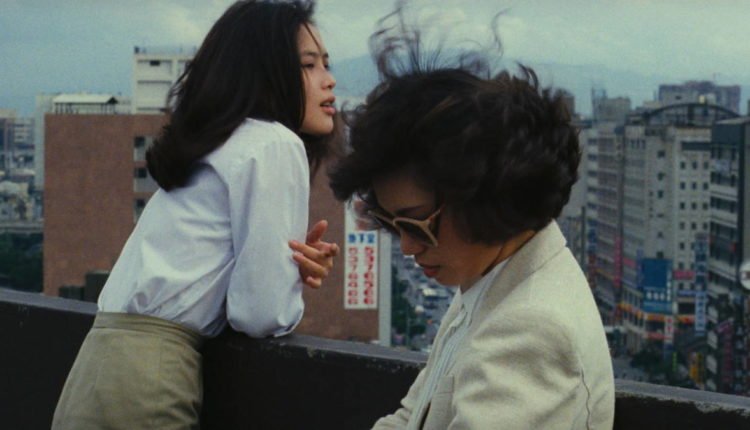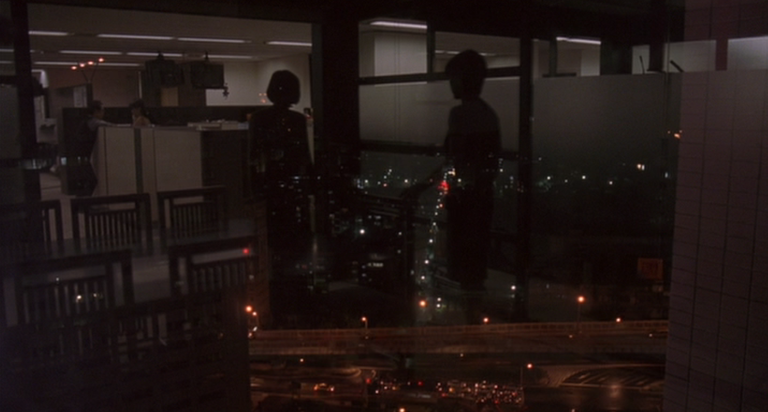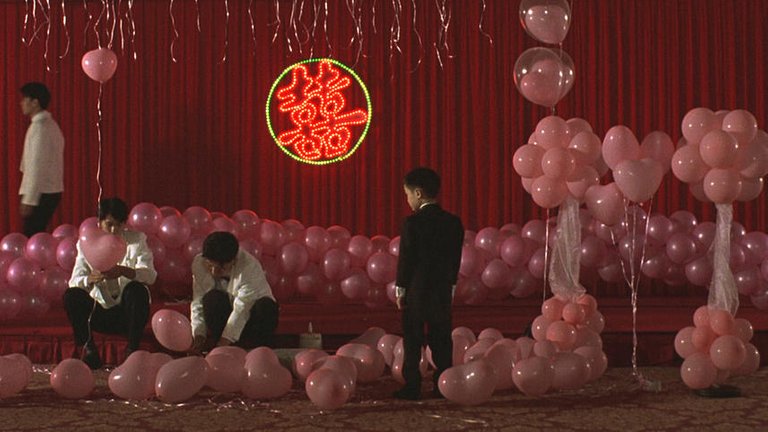
Born in Shanghai, China on November 6, 1947, Yang grew up in Taipei, Taiwan, where he would become one of the fathers of the Taiwan New Wave, thus revolutionizing Taiwanese cinema and at the same time becoming one of the most important filmmakers of his time.
Edward Yang would die at 58 years old due to colon cancer. Leaving a filmography of only 7 films, of which his last YiYi (2000), was the one that had given him the highest international recognition.

Yang like his colleagues from the Taiwan New Wave, had the will of make author films that portray the confusion and anxiety resulting from the social transformation that Taiwan was going through. Instead of being a cinema of escape from reality, the critic Jonathan Rosenbaum would define it as a cinema that "took us back to the modern world and taught us something about it", contrasting in this way with the Taiwanese cinema that preceded it , which was full of martial arts films, melodramas that did not show the Taiwanese way of life and films that were used as political propaganda by the government.
"The Taiwan film business was very much like China's. It was for propaganda. They spent millions and millions to make a film, say, about a certain national hero. It praises a guy who sacrificed his life to save a bridge during the war and protect the nation. It was very Stalinistic." Edward Yang https://site.douban.com/106789/widget/notes/127384/note/95974619/
Unlike Hou Hsiao-Hsien, who would be the other major father of this film movement, Yang focuses his stories mainly in the city of Taipei. Not only are his stories centered in that city, but Yang makes Taipei another character, as important as any human character. Today, it could relate Edward Yang's cinema with Taipei as is Scorsese's with New York.
"Edward Yang is in the intriguing position of being one of the most gifted, and least seen, filmmakers in the world, at least for American audiences. His films express the confusion, anxiety, and sheer beauty of societal transformation. Yang also equates the macrocosmic and microcosmic, making the lives of his characters stand in for the greater, less visible processes of social change. Along with Hou Hsiao-hsien and Tsai Ming-liang, Yang is one of the most visible faces of the Taiwanese New Wave, possibly the most brilliant filmmaking movement in the world today... A shared trait of all Yang’s films is a complexity resistant to quick summary or explication." Saul Austerlitz (Senses of cinema, 2002)

Yang's cinema is characterized by: it's intricate structure where different stories are happening at the same time with several characters, its somewhat novelistic approach in its narratives, his great attention to objects that later result in great relevance, and its long static shots, mostly from a general or medium shot.
"close-ups are the least effective mode of expression because they only give you facial expression, whereas any subtle movement — in the hand, in the body, in your posture, or in the way that a person walks — gives more information to the viewer than just the facial.” Edward Yang https://www.indiewire.com/2000/10/interview-reality-check-edward-yangs-living-creatures-do-a-one-and-a-two-81349/
With only seven titles in his filmography, Edward Yang films are quite difficult to find, but thanks to The Criterion Collection you can easily find what I consider are three of his masterpieces: Taipei Story; A Brighter Summer Day and Yi Yi.
TAIPEI STORY (1985)
"Taipei Story chronicles the growing estrangement between a washed-up baseball player (Hou, in a rare on-screen performance) working in his family’s textile business and his girlfriend (Tsai Chin), who clings to the upward mobility of her career in property development. As the couple’s dreams of marriage and emigration begin to unravel, Yang’s gaze illuminates the precariousness of domestic life and the desperation of Taiwan’s globalized modernity." The Criterion Collection
Edward Yang shows us two characters that seem taken from different periods, Lung from the past, and Chin who is the character that is more in line with the modernization of the city. From the first moments, and without needing the use of the word, the director with his cinematographic style makes us aware of that distance between them. During the film we will know the consequences that the rapid modernization and transformation of Taipei towards a more western society has on two individuals.
Through the way in which Yang captures the architecture and the bodies of the characters within it, it's that the viewer is going to know more about how the protagonist's emotions are.
A BRIGHTER SUMMER DAY (1991)
"A Brighter Summer Day is based on the true story of a crime that rocked the nation. A film of both sprawling scope and tender intimacy, this novelistic, patiently observed epic centers on the gradual, inexorable fall of a young teenager (Chen Chang, in his first role) from innocence to juvenile delinquency, and is set against a simmering backdrop of restless youth, rock and roll, and political turmoil." The Criterion Collection

With this film, Edward Yang manages to encapsulate and depict a time of his memory so masterfully that the spectator can not avoid immersing himself deeply in the story. Yang, through his handling of the rhythm and the slow narrative, gives us a work that will impact us both intellectually and emotionally. We not only see the development of the events by the characters, but we experience it with them. This is really one of the great films of the seventh art.
The critic Richard Brody even relates Yang to Marcel Proust:
"In the nearly four-hour span of this vast Proustian memory piece, from 1991, Edward Yang meticulously delineates the anguish of young people in Taipei in 1959 and the gang violence that pervades their lives…. Yang's methods bring a melancholy tenderness to his recollections; he films long takes of action intricately staged in real time with a rueful, contemplative reserve, and, as in Proust, the physical objects to which he pays close attention — an American tape recorder, a radio from China, a Japanese sword, a flashlight stolen from the movie studio — both signify and effect the endurance of the past."https://mubi.com/notebook/posts/a-rational-mind-the-films-of-edward-yang
YI YI (2000)
"The extraordinary, internationally embraced Yi Yi (A One and a Two . . .), directed by the late Taiwanese master Edward Yang, follows a middle-class family in Taipei over the course of one year, beginning with a wedding and ending with a funeral. Whether chronicling middle-age father NJ’s tentative flirtations with an old flame or precocious young son Yang-Yang’s attempts at capturing reality with his beloved camera, the filmmaker deftly imbues every gorgeous frame with a compassionate clarity. Warm, sprawling, and dazzling, this intimate epic is one of the undisputed masterworks of the new century." The Criterion Collection

Yi Yi shows us what it's to live in Taipei, how it's the time and space and how it affects the individual. At the same time it shows us all the qualities and resources of Yang as a filmmaker. If you do not fall in love with Yang's movies with Yi Yi, nothing will.
This would be the last film that Edward Yang would make. Winner for best director at the 2000 Cannes Film Festival, Yang not only shows us the great differences that exist between different generations of a family and how each of them deals with their own reality, but more importantly, the filmmaker teaches us with Yi Yi and the rest of his filmography that despite all the differences that we have as humans, we have more in common than we think. It's this relationship and connection with each other that makes Yi Yi an incredible swan song by Edward Yang.
Congratulations! This post has been upvoted from the communal account, @minnowsupport, by perniachiquito from the Minnow Support Project. It's a witness project run by aggroed, ausbitbank, teamsteem, someguy123, neoxian, followbtcnews, and netuoso. The goal is to help Steemit grow by supporting Minnows. Please find us at the Peace, Abundance, and Liberty Network (PALnet) Discord Channel. It's a completely public and open space to all members of the Steemit community who voluntarily choose to be there.
If you would like to delegate to the Minnow Support Project you can do so by clicking on the following links: 50SP, 100SP, 250SP, 500SP, 1000SP, 5000SP.
Be sure to leave at least 50SP undelegated on your account.